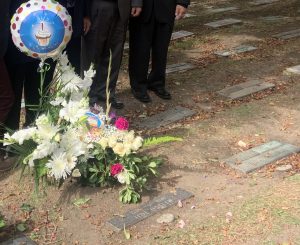
By Rev. Ken Yamada
When a person dies, many people don’t know what to do, having before never thought about it. In this regard, I’d like to clarify our Jodo Shinshu Buddhist traditions, death rituals, funerals and memorial services.

By Rev. Ken Yamada
When a person dies, many people don’t know what to do, having before never thought about it. In this regard, I’d like to clarify our Jodo Shinshu Buddhist traditions, death rituals, funerals and memorial services.
By Rev. Ryoko Osa
The teenage years are an especially bright time. At that time I had lots of imagination, passion, energy, strength, beauty. Unfortunately, I have lost most of those things now. But all of you have all of them now.
On the other hand, the way the world is today, I think you might also be experiencing some stress, some anxiety. You are finding out the world is not perfect. And so as you start out in life I want to give you these three words of advice. First: Don’t compare. Second: Don’t rush. Third: Don’t give up. Got it? Never compare, never rush, never give in. In Japanese 比べず、焦らず、あきらめず. So what do I mean by this.
Do you have anxieties? How about Buddhist ministers? Do you think they live without worries? Well, I have many anxieties. Sometimes I think I am a coward.
I guess no one in this world can avoid anxiety. Everyone has anxieties and fears, especially when life unexpectedly changes or seems beyond our control. That’s why I think people generally don’t want to make any big changes in their daily lives. We usually want a life that’s stable.
Of course, we like some changes, and we easily can tolerate small changes that we anticipate. If they are acceptable to us, we can enjoy change.
… my Japanese college buddy Jun…took me to a Pure Land Buddhist temple in Chicago. …I asked the head monk at one point how I should understand the Pure Land pursuit of heavenly paradise and Amitabha (the deification of Buddha) when the original teachings of the Buddha seemed so different.
… Then he offered in a soft voice, “Well, my friend, how does the butterfly understand its movement from one flower to the next?” This was followed by a long silence, and I nodded my head slowly, taking in the morsel of enigmatic deep wisdom. Then my friend Jun rolled his eyes and demanded of the monk, “What the hell does that mean?”
:: p. 168 The Gods Drink Whiskey by Stephen T. Asma (San Francisco: Harper, 2005)
By Rev. Koen Kikuchi
What is appreciation? What is the meaning of gratitude? How do we show our thanks?
In English, we usually say “thank you” and “I appreciate you” to show our gratitude to someone. On the other hand in Japanese, we say “arigato.” But there are other ways of saying “thank you,” for example, “gomen nasai” (literally “I’m sorry”) and “sumimasen” (literally, “excuse me”).
If I want to make my way through a crowd of people, I say “excuse me.” If I drop something and somebody picks it up for me, I say “thank you.” If I water plants and flowers, and I accidentally spray water on somebody, I say “I’m sorry.” However, in Japanese the word “sumimasen” applies to all these situations. “Sumimasen” express both appreciation and apology. Also, the word implies an attitude of humbleness—putting aside one’s ego and showing respect to others.
By Rev. Paul Imahara
I have been told many times that people don’t understand the meaning of Nenbutsu (reciting the words “Namu Amida Butsu”). Do I truly understand it myself? Not really, so I keep searching for Nenbutsu’s ultimate meaning.